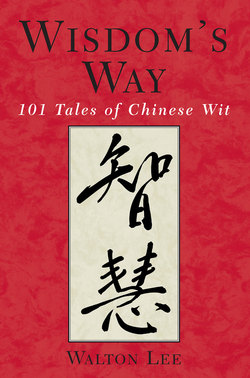Читать книгу Wisdom's Way - Walton C. Lee - Страница 6
На сайте Литреса книга снята с продажи.
Preface
ОглавлениеAn emperor once remarked: “History is a mirror. Studying it mindfully, you will learn the causes of a dynasty’s growth, decline, and fall.” In ancient China, as a tradition, every emperor had two personal historians. One was meticulously writing down His Majesty’s conversations and the other his behavior. Unfortunately most of these detailed records were destroyed between dynasties, in wars and riots. However, every dynasty had at least one set of official history made by its successor. After overthrowing an old empire and taking over all the royal documents, the new emperor, or his offspring, would often appoint historians to edit and publish those documents in biographical form.
Twenty-six sets of these histories have survived. Covering over 2,500 years, there are more than three hundred volumes, each one averaging 250 to 300 pages in length. Reading this collection was and is a favorite pastime of Chinese intellectuals, who find it significant for both its historical and literary content.
One such reader was Feng, Mon-Lon (1574-1646 A.D.). Feng worked as a low-level clerk in the imperial service for most of his life. Politically, he had no hope for advancement. Living at the end of the Ming dynasty (1368 A.D. to 1644 A.D.), he was a frequent eye-witness to government corruption. He clearly foresaw the decline and eventual collapse of the huge Ming empire. Though perceiving this unavoidable destruction, as a low-level official Feng was miserably powerless.
Powerless, but not without hope. In 1626 he began copying from what was then only twenty four sets of official history and from other books. In only two months, he collected over 1,200 anecdotes and categorized them according to levels of wisdom. Feng’s objective was to lecture the educated to be broad-minded and far-sighted, otherwise catastrophe would soon visit them. His ominous prediction became true. The decaying Ming dynasty was overthrown seventeen years later.
Wisdom’s Way is an offspring of Feng, Mon-Lon’s extensive collection of anecdotes. In its 101 stories, some true, some passed down from legend and popular lore, you will find many clues to the culture of China, and to human nature and interpersonal relationships.
To set the scene for these stories, you should understand an element of Chinese culture. In the old days, there were four classes in China: the educated, the farmers, the laborers, and the merchants. Each one of them had to follow a strict set of moral rules and a rigid code of social conduct.
For example, success in politics was the goal of the educated. It brought prestige to the individual and his family. Education was the only way to achieve this goal. Only by passing three extremely competitive national examinations could a person generally receive political appointments—usually to small and remote cities. This was the bottom of the political hierarchy. From the small cities and outlying provinces, these educated appointees would laboriously work their way back to the central government in hopes of becoming high-ranking officials. Only a handful of the intelligentsia passed all three exams. The majority of the educated class would pass only one or two exams in their whole lifetime, and usually end up becoming private tutors or government clerks.
Feng’s collection is treasured by Chinese intellectuals. Now, Western readers can enjoy these tales of sophisticated Chinese wisdom. I believe that Western readers will also be fascinated by the political intrigue and shrewd problem-solving skills demonstrated in these stories.
Because the original edition of Feng’s collection was unavailable, I used the contemporary revised version. By translating and enhancing this collection from dry and rigid classical Chinese to simple and colorful English, I hope to engage a new generation of both Chinese and Western readers.
Walton C. Lee
El Cerrito, CA
